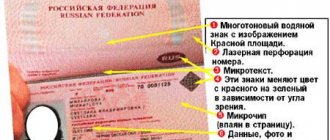Cases when parental consent for adoption is not required
For the adoption of children left without parents, priority is given to other options for placing such children: taking them into guardianship or guardianship, raising them with a family, sending children to orphanages, orphanages, and specialized medical institutions.
Only minors can be adopted, regardless of their health status.
The decision to adopt a child(ren) is made voluntarily. Therefore, if a person who wants to adopt a child goes through the entire prescribed procedure, the fact of adoption is established by a court decision. If material well-being, health, and living conditions meet all the standards used to verify the possibility of adoption and taking a child into care and upbringing, potential parents have the right to independently choose a candidate for adoption.
The basic requirements for adoption, the procedure for carrying out the adoption procedure itself, are regulated by the norms of family law in our country.
The adoption is considered finalized only after the court decision enters into legal force.
Once a child is adopted, any relationship between the adopted child and his biological parents and other relatives is legally terminated. That is, both adopted children and his blood relatives are released and are automatically released from all property and non-property obligations. Persons adopting children are subject to a number of mandatory requirements for obtaining permission to adopt:
- adoptive parents must be over 18 years of age;
- the age difference with the child being adopted must exceed 16 years. An exception is only in cases where a child from the first marriage of the second spouse is adopted by the spouse;
- potential parents should not be marked by an unfair attitude towards raising children: they were deprived of parental rights to children, were removed from guardianship due to an inappropriate attitude towards the assigned responsibilities in relation to children in care;
- persons who have been subject to criminal punishment and imprisonment for causing harm to health and threatening the lives of people also cannot raise children;
- Attention is also paid to the health status of the adoptive parents. An unconditional obstacle to permission to adopt will be the presence of: cancer, tuberculosis, mental illness.
When fulfilling all these requirements for adoptive parents, to resolve the issue on its merits, it is necessary to obtain a number of documents:
- a statement of consent of the second spouse, certified by a notary, if the adoption is carried out by a married couple;
- written or oral consent of the child’s parents at a court hearing;
- consent of the guardianship council, after examining the standard of living and other criteria for the possibility of maintaining and living the child;
- consent of the head of the children's or medical institution where the child who is going to be adopted lives;
- consent of the child himself, if he is ten years old at the time of adoption.
The question arises: is it possible to adopt a child without parental consent? To consider a case in court, parental consent is not required, according to the Family Code, if:
- the location of the blood parents is unknown;
- there is a court decision recognizing the biological parents as missing or dead;
- due to mental illness, people are recognized as partially or completely incompetent;
- completely removed themselves from supporting the child for more than six months.
Let us consider cases when a child is adopted without parental consent in more detail.
Cases when you can’t take your baby
The state, when deciding on consent to adoption, conducts a comprehensive check of persons who have expressed a desire to accept the child into their home. There are different cases when it is impossible to adopt a child.
Thus, for certain categories of citizens, after studying their characteristics, the guardianship and trusteeship authorities will issue a negative verdict on their application to formalize the adoption of one of the orphans.
Categories of citizens who are prohibited from adopting children include:
- Persons who, according to the letter of the law, are minors;
- Persons whose performance is very doubtful;
- Parents who have previously been deprived of their parental prerogatives over their biological children;
- Persons who have previously adopted children, but due to failure to fulfill their obligations, were deprived of their parental prerogatives.
Having paid attention to all these categories of persons, we can say that due to the fact that previously they, in one way or another, did not fully fulfill their duties towards children by state bodies, these parents are included in a kind of “black list”, in order to no longer subject and already offended by the fate of orphans.
Next, we will tell you about which diseases prevent you from adopting a child.
Mother's abandonment of newborn
Unfortunately, it is not uncommon for the mother of a newborn child to abandon him right in the maternity hospital, writing a “refusal” statement in the prescribed form, which is certified by the chief physician of the given medical institution or the board of guardians.
But, even with a hand-written “refusal” of the baby, the question arises whether, in order for him to be freely adopted in the future by people who will give the child care and love, it is necessary, in accordance with the current family law, to deprive such a “mother” of parental rights. The answer is clear – no, it’s not necessary.
By writing the so-called “abandonment of the child,” the “mother” thereby consents to his adoption by any potential parents who wish to take this baby.
But, writing a “refusal” from the baby, thus formalizing consent to adoption, is possible only if the mother in labor has documents confirming her identity. Otherwise, when registering a child, parents are not indicated at all.
In the case where the mother lives in a so-called “civil” marriage, and was not officially married until the birth of the baby three hundred days before she gave birth, only the mother signs the refusal.
If a woman gave birth while in a registered marriage, or was married 9 months ago before giving birth, therefore, it is considered that the child has a father. Consent in such cases is also required on his behalf.
A baby who was abandoned in a maternity hospital can be adopted at any time, without waiting “what if the mother changes her mind.”
According to Art. 121 of the RF IC, a baby left without parental care must be settled and, of course, if there are people willing to take the baby into the family, he must be adopted.
From the legal side, there are no barriers to the adoption of these babies. The mother who abandoned the newborn agrees to the adoption of the baby, as evidenced by a written statement certified by the head of the medical institution; she is not called to the court hearing when the case of adoption of the newborn is heard. A second consent is not required.
How to cancel guardianship and deprive parental rights: step-by-step instructions
It is important to decide whether you need this, since this issue presents many difficulties. Be sure to take all the pros and cons into account. After this, you can begin the procedure.
- Search for grounds for deprivation of parental rights . Remember that if a child is over 18 years old, his parents cannot be deprived of parental rights. This applies to those who:
- Didn't pick up the child from the maternity hospital.
- Avoids fulfilling his responsibilities in raising a child.
- Treats him cruelly.
- Drinks alcohol and drugs in large quantities.
- Resorts to exploitation of the baby.
- Received a criminal conviction for child abuse.
- Collection of evidence and documents . All this is carried out in accordance with the Civil Code of the Russian Federation. As documents you cannot do without a passport, certificate of residence, certificate of income.
- Payment of court fees . Without her, the adoption case will not advance one step. Be sure to keep your receipt.
- Filing a claim and waiting for trial .
NOTE! After collecting the necessary set of documents, they will need to be submitted to the court. The review may take some time, after which you will be notified of the results. - Court . It is better to choose a trusted lawyer in this matter, as he will help you avoid any troubles. However, if you do not have such an opportunity, you can get legal assistance for free.
Read more about how the adoption of a child is canceled and what consequences should be expected in a separate article, and from this article you will learn who may be the initiator of the termination of mutual obligations.
The parents of the adopted child have not been identified
It is generally accepted that the parents of a child are not identified or are said to be unknown when there is no information about who the mother or father of the child is. They don’t know their first or last names.
These are mostly “foundling” children who are found abandoned in different places.
The Baby Boxes project is becoming more and more widespread. Baby boxes are special rooms for babies where any woman can leave an unwanted newborn baby anonymously, without being held accountable by law. This gives children a chance to survive and even find a new family.
When finding abandoned children, representatives of the Ministry of Internal Affairs draw up a protocol, an act, or issue a corresponding certificate.
These documents will become the main ones for registering abandoned children without parental consent.
Statements of parental consent for adoption are not required if the children:
- thrown, or thrown;
- found in places where military operations take place;
- children are found in places where there has been a natural disaster or other emergency.
All these events are confirmed by an act drawn up in the prescribed form by the internal affairs bodies. The mother and father of these children remain unknown.
For what diseases can you get a refusal?
As noted above, government agencies carry out a comprehensive study of persons who have expressed a desire to adopt a child. This concerns not only the material and financial security of a citizen, but also his state of health.
Thus, citizens suffering from certain illnesses cannot become adoptive parents. The list of diseases for which it is impossible to adopt a child is as follows:
- Active or chronic form of tuberculosis;
- Diseases of internal organs, musculoskeletal system and central nervous system;
- Various malignant tumors;
- Suffering from drug or alcohol addiction;
- Infectious diseases, provided that, due to the presence of these diseases, the person is registered with the appropriate medical specialist;
- Suffering from various mental illnesses, due to the presence of which the person is recognized as incompetent or partially incompetent;
- Illnesses on the basis of which a person is disabled.
The reason for refusing adoption to these citizens is that due to the presence of serious illnesses, there is a high probability of inadequate financial support for the children, which is unacceptable.
Parents declared missing
As noted earlier, in order to adopt a child, the consent of his biological parents is required. One of the exceptions to this rule for registering adoption is the unknown absence of parents and the impossibility of obtaining consent from them.
A person is declared missing in action in court in cases where there is no information about him and the place where he may be in his last known location (residence) for more than a year.
If it is impossible to clarify the date when the latest information about the missing was received, the beginning of the period for declaring missing is considered to be the beginning of the new month after receiving news from him.
If it is not possible to clarify the month when news was last received, consider the period of disappearance from January 1 of the new year.
Incompetent parents
If the parents of the child being adopted are recognized by the court as incompetent due to mental illness, not controlling their actions, and not being aware of them, their consent to the adoption and presence in a closed court hearing on the issue of adoption of their biological child is not required by law.
It goes without saying that, due to the nature of their illness, they are not able to raise their children or give them proper care. These people cannot consciously express their desire - to give or not consent to the adoption of a child.
For these reasons, their consent is not required by law.
But, at the same time, if the child’s parents are partially limited in legal capacity by a court decision, in such cases consent to adoption is required, since they are limited only in property rights.
Grounds and conditions for adoption
According to the Family Code, the adoption of a previously adopted child is possible if it does not correspond to the interests and rights of the child.
The indisputable grounds for canceling a previously carried out adoption are stated in paragraph 1 of Article 141 of the Family Code:
- Adoptive parents shirk the responsibilities entrusted to them and abuse their rights.
- The people who adopted the baby treat him cruelly.
- Adoptive parents use drugs and alcohol in the presence of the child.
If one of the situations is confirmed, the adoption act is canceled and the child receives the right to be adopted into another family. Deprivation of parental rights implies the introduction of a list of various types of grounds.
ATTENTION! Family law establishes that the cancellation of adoption can only be carried out on legal grounds and is assessed by a court employee.
There is no approximate list of grounds for such actions in Russian legislation (for details about what legal consequences of adopting a child are prescribed in the legislation of the Russian Federation, as well as what will happen if the decision is canceled, read in a separate material). Based on judicial practice, we can say that circumstances may be different. The most important thing is for the child to satisfy his interests and find a truly loving family.
Also, do not forget about the legal requirement, which implies that the child’s opinion must be taken into account. But not all courts willingly agree to such actions, especially when the opinion is contrary to the interests of the minor.
If a child is unable to appreciate the behavior of his adoptive parents, and also to realize that he is being harmed, then the judge can cancel the re-adoption without giving reasons.
Preparation of adoptive parents for such a step as raising a child is carried out free of charge.
The conditions for adoption are quite strict - only those who have not been deprived of parental rights have the right to raise a child. As for the unemployed, they are also unlikely to succeed in this matter (you can find out whether there are restrictions for adoptive parents here). At any time, if something goes wrong, the process can be closed.
Parental evasion from upbringing and maintenance
When parents live with the child in different places or cities for more than six months, without a good reason, and do not take any part in the process of upbringing and financial support, consent to adoption is not required from them.
Such cases include children living with grandmothers, sisters, close and distant relatives, or in various institutions.
The mother and father do not check on the children, do not allocate money to provide them with everything they need, do not communicate with the children either by phone or by correspondence, and do not pay any attention or care.
It happens that a mother and father do not live with their children due to objective circumstances that are considered valid reasons. Such situations do not relate to their evasion of parental duty, therefore, consent in such cases is mandatory. Valid reasons include:
- being on treatment;
- being a prisoner of war during hostilities in wartime;
- being under arrest and others.
When a case is heard in court on the issue of adoption of children, all the circumstances of the parents’ separate residence from the children and their fulfillment of parental duties are investigated and taken into account.
Taking into account all the evidence, the court determines whether the reasons why parents do not raise and support children are valid or not.









